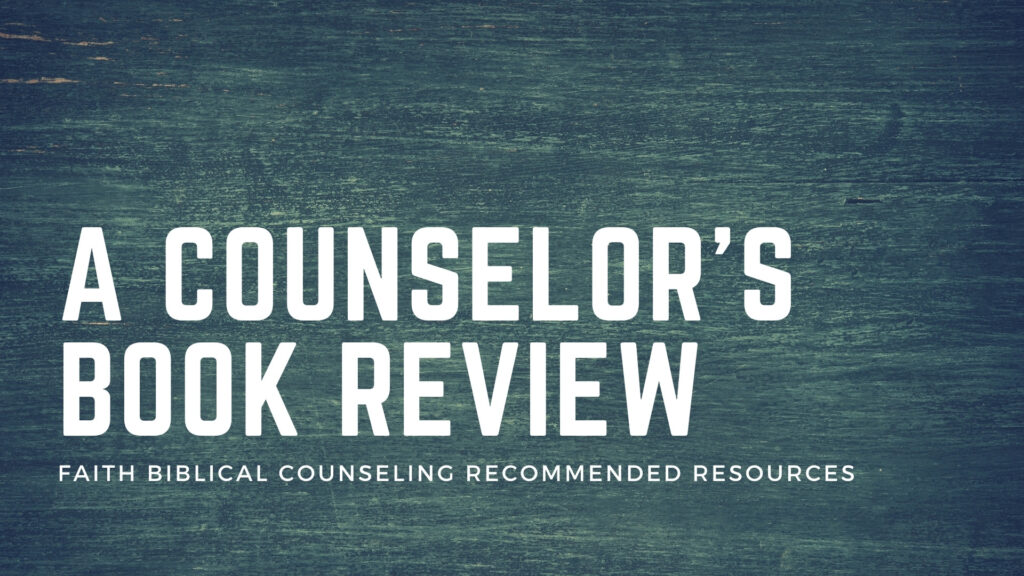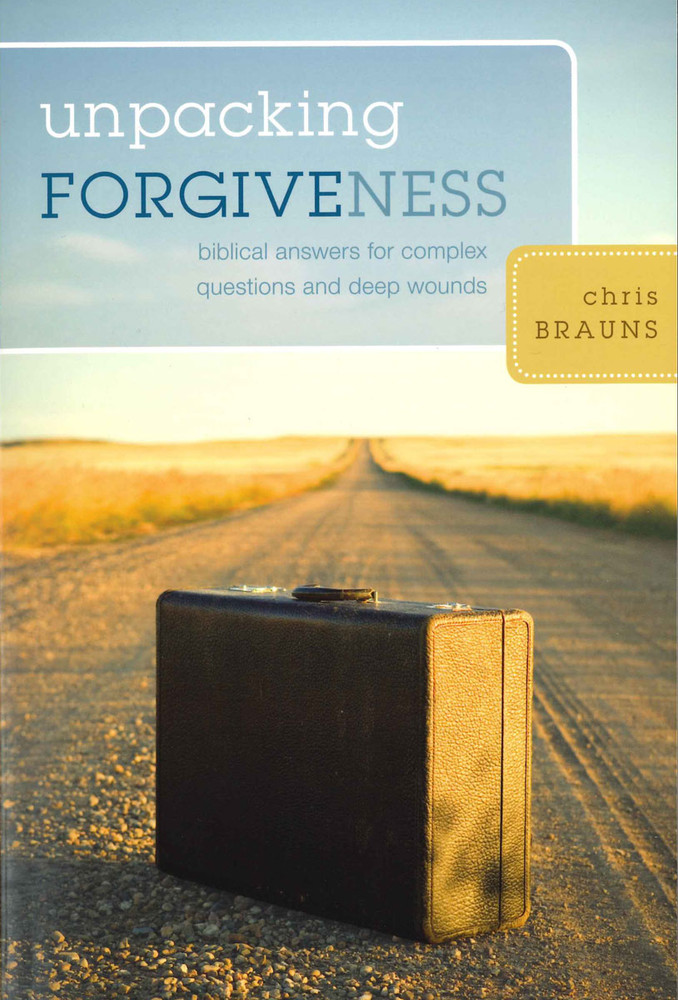
Of all the resources listed in the reading requirements for ACBC’s Reconciliation Specialization, Unpacking Forgiveness by Chris Brauns is my favorite. The flow of the information from chapter to chapter is very logical. The discussion questions at the end of each chapter are truly helpful and could be used in counseling or a Bible Study format. Most importantly, the content is biblical!
Summary of Content
Please do not skip the introduction! The author begins with a great quiz which sets the tone for the book and gets the reader thinking critically. In the context of working through the answers to the quiz, Brauns gives insight into where the book is headed, giving the reader an idea of which chapters could be especially helpful.
Before the author ever defines and discusses forgiveness, chapters 1 and 2 lay a foundation necessary to understanding and rightly implementing what’s to come in the rest of the book. In the first chapter, the reader is encouraged to take on Christ’s yoke through the means of grace. Brauns writes, “These means of grace are how we take Christ’s yoke upon us and learn from him. Christ’s way of unpacking forgiveness is not three easy steps. It is a way of life, following Jesus, learning from him, being involved in his church, hearing his Word preached. Apart from consistent involvement in these disciplines, you are trying to paddle with a stick. And that just won’t work.” (Page 32) Chapter 2 moves from methods to motivations. With a great deal of influence from the ministry of John Piper, Brauns argues that maximum happiness in life (With a biblical understanding of where that happiness comes from) will motivate us to pursue forgiveness.
Once the foundation has been laid, Brauns uses chapters 3-5 to define and refine our understanding of forgiveness. We first learn to define forgiveness by looking to what God has given to us.  This key principle is stated, “God expects believers to forgive others in the way that he forgave them.” Then, God’s forgiveness of his people is defined as, “A commitment by the one true God to pardon graciously those who repent and believe so that they are reconciled to him, although this commitment does not eliminate all consequences.” (Pg. 51) For people, this definition is then modified as, “A commitment by the offended to pardon graciously the repentant from moral liability and to be reconciled to that person, although not all consequences are necessarily eliminated.” (Pg. 55) Brauns is careful to highlight the nuances of reconciliation and consequences throughout the book. He does not make the mistake of forgetting that anything ever happened or expecting people to put themselves into dangerous or abusive situations. He also does an excellent job of contrasting “therapeutic forgiveness” (The idea of unconditionally letting go of my feelings for the benefit of my peace of mind) with biblical forgiveness.
This key principle is stated, “God expects believers to forgive others in the way that he forgave them.” Then, God’s forgiveness of his people is defined as, “A commitment by the one true God to pardon graciously those who repent and believe so that they are reconciled to him, although this commitment does not eliminate all consequences.” (Pg. 51) For people, this definition is then modified as, “A commitment by the offended to pardon graciously the repentant from moral liability and to be reconciled to that person, although not all consequences are necessarily eliminated.” (Pg. 55) Brauns is careful to highlight the nuances of reconciliation and consequences throughout the book. He does not make the mistake of forgetting that anything ever happened or expecting people to put themselves into dangerous or abusive situations. He also does an excellent job of contrasting “therapeutic forgiveness” (The idea of unconditionally letting go of my feelings for the benefit of my peace of mind) with biblical forgiveness.
Often, when we are confronted with the truth about forgiveness, we struggle and strain in our hearts against our desires to hold on to our offenses. In chapters 6-7, Brauns addresses the heart of the forgiver; what needs to be true of us to be more inclined to want to forgive. The first four verses of Matthew 18 are emphasized and remind the reader, before his teaching on forgiveness and church discipline, Jesus taught on humility. Brauns then argues from Matthew 18:5-14 that our hope of not causing anyone to stumble and our shared interest in the well-being of every soul (Every “sheep”) will create in us the desire for urgency toward resolution when there is conflict.
From chapter 8 on, common questions concerning forgiveness are answered. Here is a list of most of the chapter titles (Which are all in the form of a question) with a short description:
- Should I Just Get Over It? (Diagnostic questions to help decide if it’s best to “overlook an offense.” – Proverbs 19:11)
- How Should I Go About It? (The methodology of biblical rebuke and the process of church discipline.)
- What If I Won’t Forgive? (A biblical warning to “unforgiving servants.” – Matthew 18:21-35)
- How Should I Respond to the Unrepentant? (How to interact – and leave room for the wrath of God – with those who will not repent.)
- How Can I Conquer Bitterness? (Learning from the example of Asaph in Psalm 73.)
- How Can I Stop Thinking About It? (Biblical help to move forward with our heart and minds guarded in Christ Jesus – Philippians 4:4-7)
- What If Christians Cannot Agree? (A practical look at the conflict between Paul and Barnabas.)
The appendixes are also great resources. In the appendixes, you will find additional commonly asked questions addressed, a collection of other Christian authors defending the biblical position of conditional forgiveness, and word studies from pertinent Hebrew and Greek words in Scripture.
Primary Area of Usefulness
This book does an exceptional job of defining and giving counsel to the reader concerning biblical forgiveness and reconciliation. It covers the technical aspects. It aims for the heart motives and thinking of the reader. And it is very biblical in its content and approach. I appreciated very much Chris Braun’s approach to utilizing the Scripture as the foundation of the content he presented. Many good books have biblical support (Often listed in parentheses after statements are made). This book truly teaches from the Scriptures. I highly recommend it.
Example Uses of the Resource
Every biblical counselor, pastor, or any other Christian who ever interacts with other human beings would benefit from reading this book! Having a good understanding of its content would sharpen preaching, teaching, counseling, and regular personal interaction with others. It certainly could be used in counseling settings (With great homework ideas in the “Discussion Questions”). This book could also be utilized as assigned reading in personal discipleship or the classroom, or as a Bible study resource for men’s and women’s groups.
 Biblical Counseling
Biblical Counseling